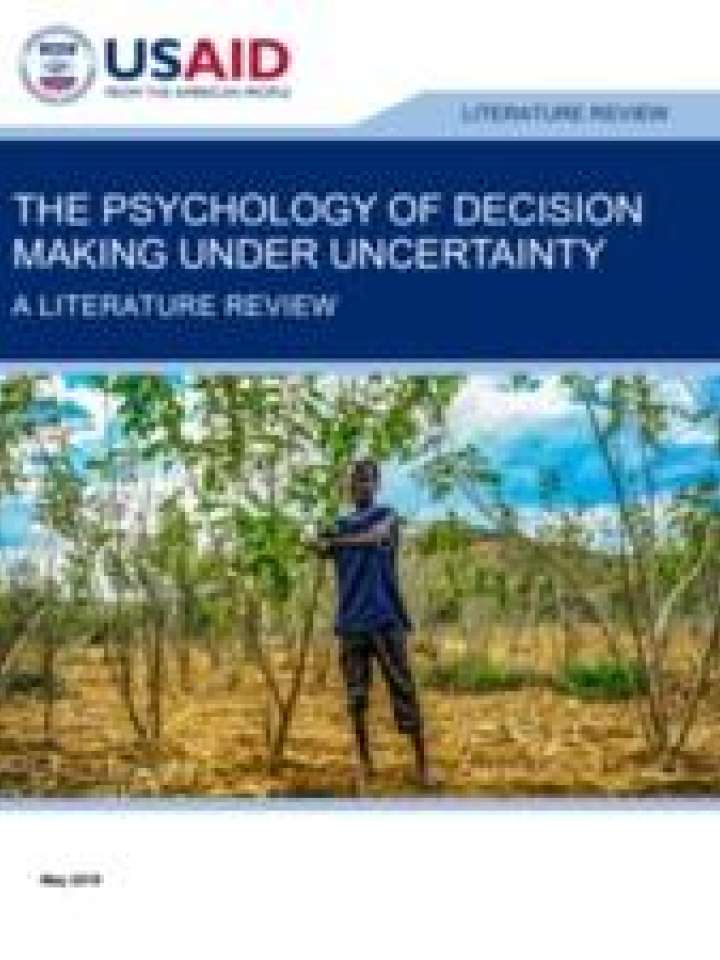The psychology of decision-making under uncertainty: A literature review
Climate change information is often presented with a range of uncertainty about the extent of potential risks and the impacts of those risks. In climate science, the problem of deep uncertainty – uncertainty that is not likely reduced by additional research in a defined timeframe – poses a critical challenge for decision makers. Coupled with shortcomings in current efforts to communicate climate change, deep uncertainty creates a barrier to the uptake and use of climate information in adaptation programming. Knowledge from decision-making psychology may offer insights on how to improve climate change communication, integrating information under deep uncertainty.
This report from the USAID-funded Adaptation Thought Leadership and Assessments project examines the literature on the psychological concepts that may inform decision-making processes under uncertainty in general, with a focus on climate-related decisions where possible. The report provides an overview of relevant literature, outlines key factors affecting both individual and group decision-making, and offers insights on adaptive risk-management strategies to manage uncertainty. Lastly, the report details opportunities for additional investigation of key concepts to help foster more effective decision-making for climate change policy, planning and action.
The purpose of this literature review is to inform the development of a research study that aims to improve the communication of uncertain climate information to decision makers by: 1) exploring how users make decisions when knowledge of an issue is not clear; and 2) using existing knowledge to explore how climate information can be better used in decision-making.
This report is accompanied by a technical report that examines the results of a study by the Climate System Analysis Group at the University of Cape Town that applied key concepts presented in the literature review, including experiential versus analytical information and prospect theory.
Explore further
